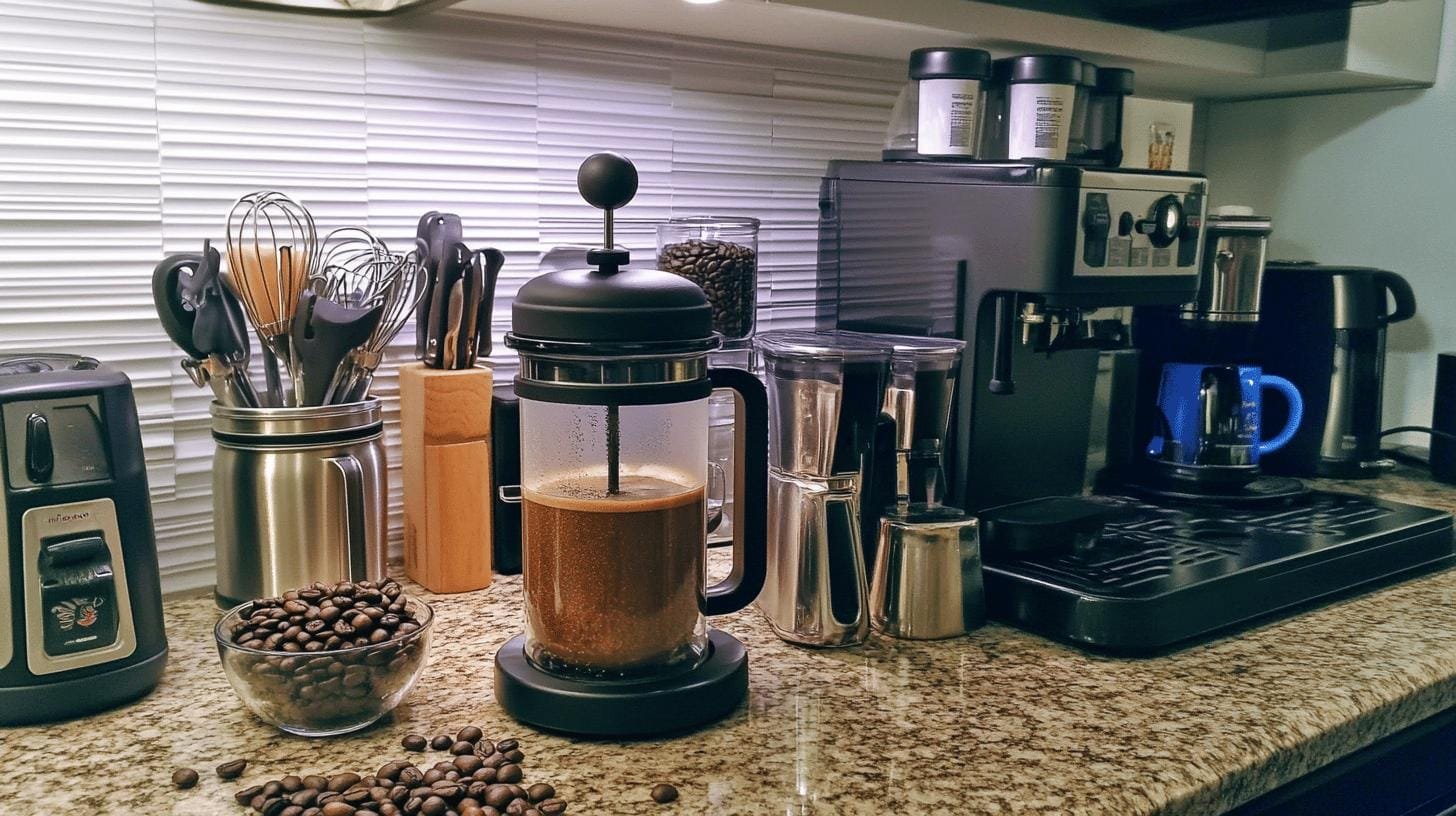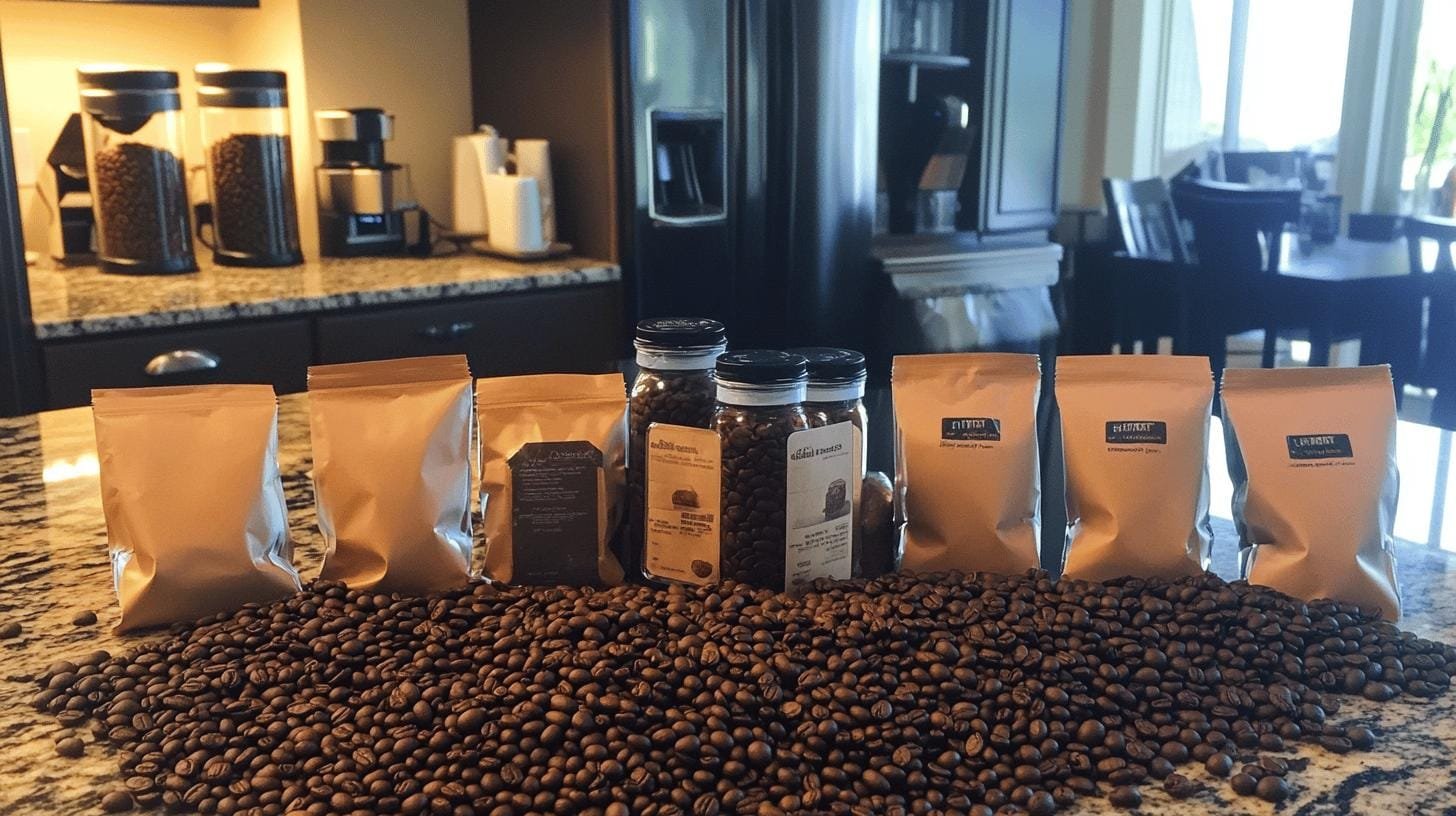
Emerging Approaches Redefining Craft-Focused Customer Experiences
Craft-focused small businesses have always relied on care, precision, and sourcing to stand out. What’s changing now is how those values are shown, not just

For those with high cholesterol, the aromatic allure of coffee can seem both a temptation and a potential dietary dilemma. With common beliefs linking coffee to increased cholesterol levels, particularly with unfiltered brews, it’s easy to question its place in a cholesterol-conscious lifestyle. However, understanding the nuances of coffee’s impact on cholesterol is key.
This article delves into answering the question “Can I Drink Coffee If I Have High Cholesterol?” examining how various brewing methods and consumption habits influence health outcomes. By exploring scientific studies and practical advice, readers will gain clarity on maintaining their coffee ritual without compromising heart health.
Cholesterol is a waxy substance in your blood. It’s vital for building cells, making hormones, and helping digestion. However, too much cholesterol can cause fat to build up in your blood vessels, raising the risk of heart disease. Your body makes cholesterol naturally, but diet and lifestyle can also affect levels. Keeping cholesterol balanced is crucial since high levels, especially low-density lipoprotein (LDL), heighten heart disease and stroke risks.
Coffee has been closely examined for its effect on cholesterol. Studies show the link between coffee and cholesterol is complex. A meta-analysis found coffee consumption can boost cholesterol by about 12 points in many cases. The impact is stronger with unfiltered coffee, which contains cafestol and kahweol oils that raise cholesterol. While coffee has health perks, those with high cholesterol should be cautious, especially in their coffee type and brewing method.

Unfiltered coffee, such as espresso and French press, can significantly impact cholesterol levels. This is due to cafestol and kahweol in coffee oils. Without a filter, these compounds remain in the brewed coffee. They’re linked to increased LDL cholesterol, especially with more than two cups daily. For those with high cholesterol or heart risks, this is concerning. The absence of filtering means these oils are more prevalent, raising cholesterol spikes.
Filtered coffee offers a healthier alternative. Using paper filters removes most cafestol and kahweol, reducing their effect on LDL cholesterol. This makes it a better option for managing high cholesterol. The filter captures cholesterol-raising oils, offering a safer daily drink. By choosing filtered coffee, you can enjoy coffee with less impact on cholesterol.
Coffee poses risks for those with high cholesterol due to cafestol and kahweol in unfiltered brews. These compounds can increase LDL cholesterol by 10 to 15% at high doses. This rise is notable, especially for those at risk of heart diseases. Limiting unfiltered coffee can help minimize risks. Opt for brewing methods that reduce these compounds, like using paper filters.
Despite risks, coffee also offers heart benefits when consumed moderately. Studies link moderate coffee intake to a reduced risk of heart diseases. This is due to coffee’s antioxidants and its ability to improve blood vessel health. So, balancing coffee consumption and opting for filtered types lets individuals enjoy coffee while managing heart risks effectively.

Those with high cholesterol can still enjoy coffee, but choosing the right type is key to managing LDL cholesterol well.
Light to moderate consumption, one to two cups daily, is considered safe for those with high cholesterol. This amount is less likely to raise cholesterol compared to heavy consumption. Moderation not only prevents spikes but also allows enjoying coffee’s antioxidant benefits. Choosing filtered or black coffee helps manage cholesterol concerns.
Diet plays a critical role in managing high cholesterol. A balanced diet helps control LDL cholesterol and supports heart health. The Mediterranean Diet is particularly beneficial. It emphasizes whole foods like vegetables, fruits, grains, fish, and olive oil. Rich in healthy fats and antioxidants, this diet helps lower LDL and improve HDL cholesterol, reducing heart disease risks.
Lifestyle changes also significantly affect cholesterol. Regular exercise helps raise HDL and lower LDL and triglycerides. Engaging in 150 minutes of aerobic exercise weekly has positive effects. Managing stress and quitting smoking are vital for heart health. Stress can increase cholesterol, and smoking hurts HDL levels. Through these changes, managing cholesterol becomes more effective.
Self-care is key in preventing heart issues linked to high cholesterol. Regular health checks, monitoring cholesterol, and following medication regimens are crucial. Staying informed on health metrics allows proactive management. Additionally, relaxation supports overall health, reducing stress’s impact on cholesterol. Dedicated self-care enhances cholesterol management and supports a heart-healthy lifestyle.

Coffee’s effect on LDL can depend on the beans used. Commercial brands often focus on mass production, sometimes not prioritizing health. Their beans may have more cholesterol-raising compounds like cafestol and kahweol based on processing.
Additives and preservatives in commercial coffee can also contribute to cholesterol concerns. Thus, those with high cholesterol should be cautious with commercial products.
Home-roasting beans offers benefits for managing cholesterol. It allows control over the roasting process, ensuring minimal exposure to cholesterol-raising compounds. Home-roasted beans typically lack additives, reducing cholesterol impacts. This control helps tailor coffee to individual health needs, providing a healthier choice for those worried about cholesterol.
Exploring the intricate relationship between coffee and cholesterol reveals both intriguing connections and actionable insights. Consistent evidence suggests unfiltered coffee can elevate cholesterol levels, while the use of paper filters mitigates this effect. Despite these risks, moderate coffee consumption can contribute positively to heart health, offering a nuanced perspective for those managing high cholesterol.
The journey through coffee’s impact underscores the importance of brewing methods, choice of coffee types, and lifestyle adjustments. For individuals pondering “can I drink coffee if I have high cholesterol,” the answer lies in balanced consumption and informed decisions, ensuring coffee remains a harmonious part of a health-conscious lifestyle.
Filtered coffee is recommended for managing cholesterol, as it removes most of the cholesterol-raising oils, such as cafestol and kahweol, commonly found in unfiltered coffee.
Reducing or switching to filtered coffee can help manage cholesterol without completely eliminating coffee from the diet.
Limit unfiltered coffee, sugary drinks, and alcohol to manage high cholesterol effectively. These can contribute to cholesterol increases and overall health issues.
Coffee can elevate cholesterol and potentially affect blood pressure, especially if consumed in large quantities or if unfiltered. Switching to filtered or limiting intake can mitigate risks.
Bananas are beneficial for high cholesterol as they provide fiber, which helps in reducing LDL cholesterol levels. Incorporating them into the diet can support cholesterol management.

Craft-focused small businesses have always relied on care, precision, and sourcing to stand out. What’s changing now is how those values are shown, not just

How can brands create a more balanced and memorable customer experience by blending artisanal product quality with thoughtful everyday rituals that keep people coming back?

Independent coffee shops have always been about more than caffeine—they’re hubs of creativity, connection, and care. As café culture continues to evolve, new trends are

Introduction Independent cafes win when they feel like the neighborhood’s living room and operate with the discipline of a great kitchen. Below is a quick

Discover how top specialty coffee brands create lasting loyalty through storytelling, sourcing, and community connection. Real tips from 6 industry experts.

Discover the ultimate showdown between two beloved coffee brewing methods: the French press and Chemex. Explore how each technique caters to distinct palates, with the French press delivering bold flavors and the Chemex presenting a bright, clean taste.

Unlock the secrets to brewing the perfect cup of coffee with our comprehensive guide on using a coffee scale. Discover how precise measurements enhance flavor and consistency while eliminating bitterness.

Discover how water temperature plays a vital role in brewing the perfect cup of coffee. This article delves into the ideal temperature range of 195°F to 205°F for optimal flavor extraction, enhancing the enjoyment of high-quality beans.

Discover the world of curated specialty coffee bundles, perfect for enthusiasts seeking quality and craftsmanship. This article explores the benefits of ethically sourced, small-batch beans from brands like Equipoise Coffee, offering diverse flavor profiles that elevate your brewing experience.